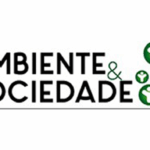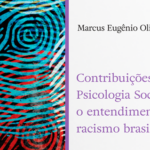Karina Penariol Sanches, Analyst in Science and Technology, Journalist at Fundacentro, São Paulo, SP, Brazil.
 Environmental and life degradation accompany transformations in labor, intrinsically linked to social precarization. This is the premise of the essay Well-being aligned with sustainability: contributions of the Brazilian solidarity economy, published in the Sustainable Development and Work Dossier (vol. 50, 2025) of the Brazilian Journal of Occupational Health/Revista Brasileira de Saúde Ocupacional (RBSO). The publication critically reflects on the impact of capitalism on work, health, and the environment, presenting the solidarity economy as a transformative social alternative that promotes well-being, mental health, food security, and social justice.
Environmental and life degradation accompany transformations in labor, intrinsically linked to social precarization. This is the premise of the essay Well-being aligned with sustainability: contributions of the Brazilian solidarity economy, published in the Sustainable Development and Work Dossier (vol. 50, 2025) of the Brazilian Journal of Occupational Health/Revista Brasileira de Saúde Ocupacional (RBSO). The publication critically reflects on the impact of capitalism on work, health, and the environment, presenting the solidarity economy as a transformative social alternative that promotes well-being, mental health, food security, and social justice.
One way to resist capitalism, patriarchy, and colonialism is by recognizing other ways of living based on dignified, sustainable, and politically, economically, socially, and culturally fair work and life. From the perspective of Social Psychology of Work, Andréia de Conto Garbin, from the School of Public Health of the University of São Paulo (USP), along with Cris Fernández Andrada and José Agnaldo Gomes, both from the Pontifical Catholic University of São Paulo (PUC-SP), analyze the experience of the Justa Trama network. Comprising approximately 700 individuals—most of them women—organized into collectively managed enterprises based on the agroecological cotton production chain, the network includes three cooperatives and three associations across four regions of Brazil.
The study reinforces that self-managed collective relationships embody a strong connection between health and sustainability by improving income and the living and working conditions of families. At the core lies decision-making autonomy, free from managerial or employer interference, enabling workers to prioritize life in its diverse dimensions. This characteristic contributed to the creation of flexible and healthy organizational and productive environments.
Among the observed outcomes are reduced dependence on pesticides, chemical fertilizers, and genetically modified seeds, leading to decreased illness and contamination. Adapting work to workers’ needs—by alternating workloads through different life stages—was another positive aspect, facilitating reproductive and caregiving work, among other responsibilities.
These features of production flexibility inherent to self-management mitigate the harmful effects of long working hours. They foster personal and family well-being, dignified work, mental health, environmental sustainability, and social justice. Beyond economic and environmental benefits and resistance to labor precarization, the researchers highlight the network’s political relevance. Justa Trama participates in local and national forums and develops strategies to combat inequality through initiatives such as community banks, childcare centers, cooperatives, and cultural projects.
“The dialogue with women workers did not yield simple answers or solutions but rather questions and, perhaps, a deeper understanding of the complexity of the issue, without the despair that denies the possibility of another world. We must place the issue of sustainability at work on the horizon of transformations toward a more just society,” they conclude.
To read the article, access
GARBIN, A.C., ANDRADA C.F. and GOMES J.A. Well-being aligned with sustainability: contributions from the Brazilian solidarity economy. Rev Bras Saude Ocup [online]. 2025, vol 50, eddsst3 [viewed 6 November 2025]. https://doi.org/10.1590/23176369/07724en2025v50eddsst3. Available from: https://doi.org/10.1590/23176369/07724en2025v50eddsst3
External links
Revista Brasileira de Saúde Ocupacional – RBSO
Revista Brasileira de Saúde Ocupacional (Fundacentro)
Revista Brasileira de Saúde Ocupacional – X
Como citar este post [ISO 690/2010]:



















Recent Comments